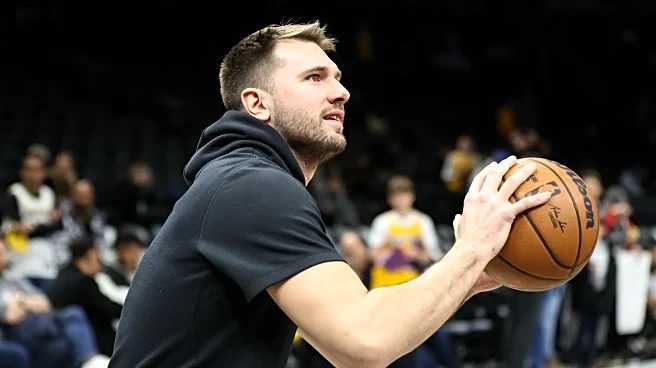What's Happening?
Isabelle Tate, an actress known for her role in the pilot episode of '9-1-1: Nashville,' has passed away at the age of 23. Her death was attributed to a rare form of Charcot-Marie-Tooth disease, a progressive
neuromuscular disorder. Her co-star, Hunter McVey, expressed his shock and sorrow over her passing, highlighting her supportive nature and positive energy on set. Tate's talent agency, The McCray Agency, confirmed her death and shared that she passed away peacefully. The agency and her family have requested privacy during this difficult time and have encouraged donations to the Charcot-Marie-Tooth Association in her memory.
Why It's Important?
The death of Isabelle Tate at such a young age underscores the impact of rare diseases and the challenges faced by those living with them. Her passing brings attention to Charcot-Marie-Tooth disease, raising awareness about the condition and the need for research and support for affected individuals. The entertainment industry, particularly those involved in '9-1-1: Nashville,' mourns the loss of a promising young actress whose career was just beginning to flourish. Her story also highlights the importance of inclusivity and representation of individuals with disabilities in media, as she portrayed a character who used a wheelchair.
What's Next?
The upcoming episode of '9-1-1: Nashville' will feature an 'in memoriam' card in honor of Isabelle Tate. This gesture serves as a tribute to her contribution to the show and her impact on her colleagues. The McCray Agency and her family continue to advocate for donations to the Charcot-Marie-Tooth Association, which may lead to increased funding and awareness for research into the disease. The entertainment community may also reflect on the importance of supporting actors with disabilities and ensuring their stories are told authentically.
Beyond the Headlines
Isabelle Tate's journey with Charcot-Marie-Tooth disease sheds light on the personal struggles and resilience of individuals living with chronic conditions. Her openness about her diagnosis and the challenges she faced can inspire others dealing with similar issues to embrace their circumstances and not let them define their identity. Her legacy may encourage more inclusive storytelling in Hollywood, where characters with disabilities are portrayed by actors who share those experiences, fostering greater understanding and empathy among audiences.











